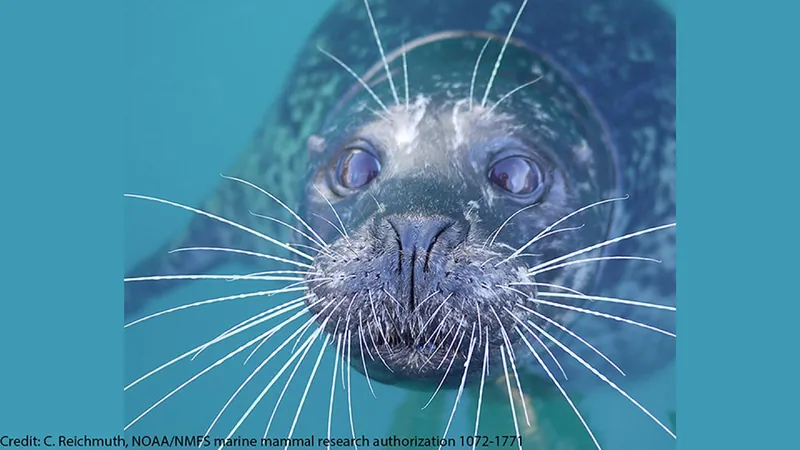
How Loud Noises Are Impacting Seals: Surprising Findings from Groundbreaking Research
2025-07-01
Author: Yu
The Hidden Dangers of Coastal Noise Pollution
In our bustling coastal areas, seals are constantly bombarded by various human-generated sounds. From the rumbles of shipping and dredging underwater to the roar of cars and planes overhead, these noises pose a significant risk to the delicate hearing of these marine mammals.
Groundbreaking Research Unveils Insights into Seal Hearing
A team of dedicated researchers, led by Colleen Reichmuth, recently delved into a comprehensive dataset from the University of California, Santa Cruz. Their mission? To uncover how loud noises can lead to temporary threshold shift (TTS) in seals—a phenomenon where loud sounds cause a temporary drop in hearing sensitivity.
Innovative Experimentation with Seals in Controlled Settings
Over several years, the research team conducted meticulous experiments using a northern elephant seal and a harbor seal, training them to leave their pools and enter a hearing chamber. Initial assessments measured their hearing ability in a serene, controlled environment before exposing them to specific loud sounds. After the noise exposure, they re-evaluated the seals to gauge any alterations in their hearing.
Fascinating Findings: Seals Show Unique Resilience to Noise
Astoundingly, the research identified that seals seem to be less vulnerable to hearing loss from airborne noises compared to their marine counterparts like sea lions and fur seals. This new information is pivotal in refining noise exposure guidelines for marine mammals, according to Reichmuth.
Duration vs. Intensity: A Surprising Twist in TTS Impact
Another critical revelation from this study is that the duration of noise exposure has a more pronounced effect on TTS than its intensity. This finding could reshape how we understand and mitigate the impacts of noise pollution on marine life.
An Unusual Observation: Seals Adapting to Protect Their Hearing
One particularly intriguing observation involved a harbor seal that developed a remarkable adaptation during the experiment, learning to close its ears to shield itself from the noise. "This presents an exciting avenue for further investigation," remarked Reichmuth, highlighting the potential for future research into the adaptive behaviors of seals.
Conclusion: Protecting Marine Mammals in a Noisy World
As coastal areas continue to grow busier with human activity, understanding the impact of noise on marine mammals becomes increasingly vital. The insights from Reichmuth and her team not only shed light on the resilience of seals but also underscore the importance of protecting these incredible animals in an ever-noisier world.



 Brasil (PT)
Brasil (PT)
 Canada (EN)
Canada (EN)
 Chile (ES)
Chile (ES)
 Česko (CS)
Česko (CS)
 대한민국 (KO)
대한민국 (KO)
 España (ES)
España (ES)
 France (FR)
France (FR)
 Hong Kong (EN)
Hong Kong (EN)
 Italia (IT)
Italia (IT)
 日本 (JA)
日本 (JA)
 Magyarország (HU)
Magyarország (HU)
 Norge (NO)
Norge (NO)
 Polska (PL)
Polska (PL)
 Schweiz (DE)
Schweiz (DE)
 Singapore (EN)
Singapore (EN)
 Sverige (SV)
Sverige (SV)
 Suomi (FI)
Suomi (FI)
 Türkiye (TR)
Türkiye (TR)
 الإمارات العربية المتحدة (AR)
الإمارات العربية المتحدة (AR)